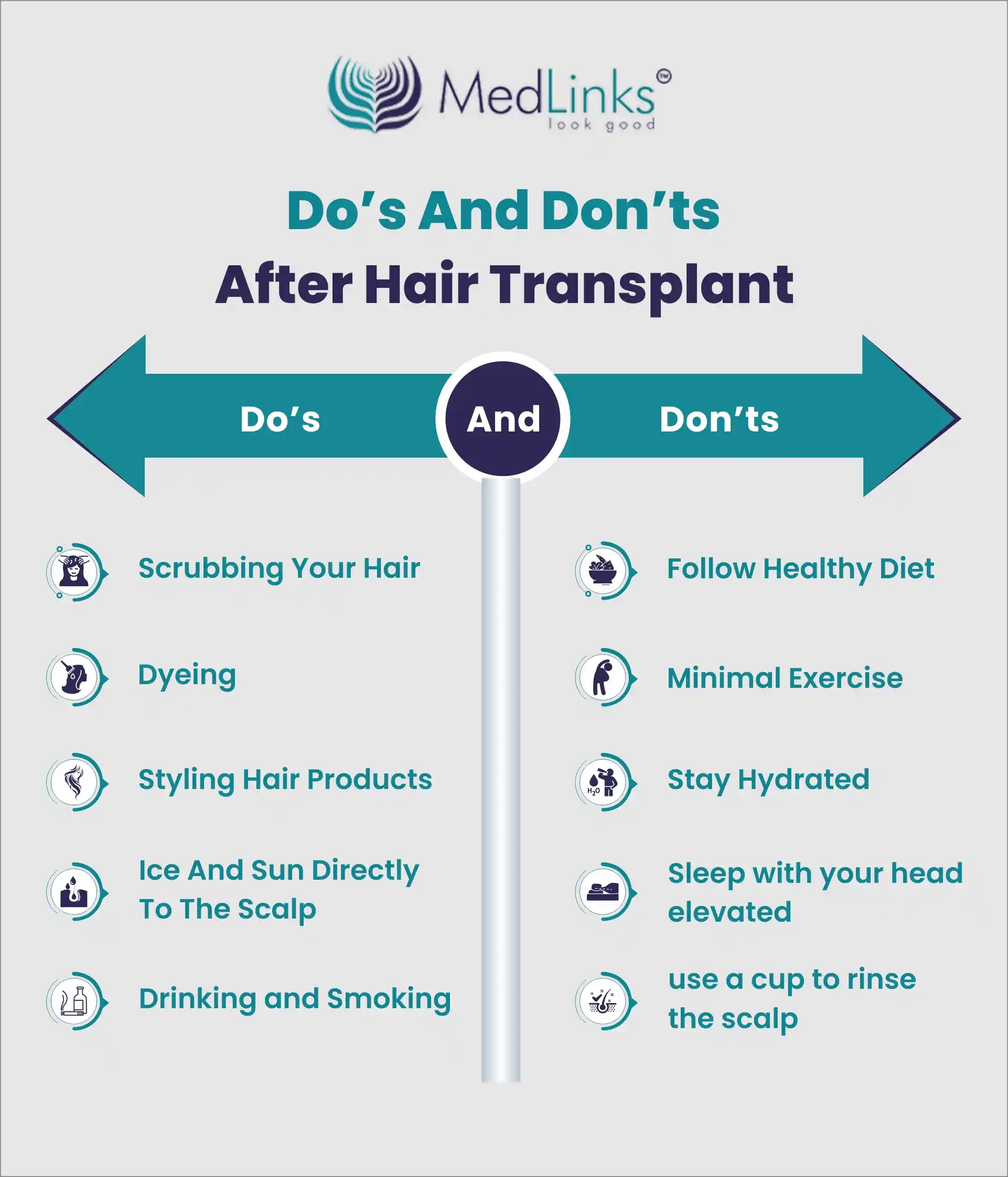- Home
- About Us
- Hair Transplant
- Hair Loss
- Medical Treatment
- Patients Gallery
- Our Patients
- Blog
- Contact Us
- Hair Transplant Cost
- Book an Appointment
- Brochure
Hair transplants are known to provide permanent hair restoration solutions. Hair transplants enable thick, lustrous, natural hair growth. The hair that regrows in the transplanted region grows organically following the natural hair growth and shedding cycle.
However, people having terrific hair loss issues and aspiring for a fuller hair appearance often look for permanent solutions with less rework. They come up with questions like- how long do hair transplants last?
While the simple answer is that hair transplants last for a lifetime. One needs to be aware that their permanent solution is permanent if one takes care of the factors influencing a successful hair transplant.
This article gives you insights into these influencing factors while informing some tips and suggestions for long-lasting hair after a hair transplant.
Feel free to skip ahead if one topic catches your eye:
Worries regarding hair transplant permanence are justifiable. Evidence suggests that in most situations, hair transplants last for a lifetime. The hair follicles from the donor sites are relocated to the recipient or the bald areas.
The transplanted follicles follow the natural hair growth cycle that grows organically in conjugation with the surrounding hair, and the regrown hair behaves equivalent to the rest of the hair. Thus, guaranteeing hair transplants that easily blend with the surrounding hair post-surgery.
Though hair transplants require no extra maintenance and rework, proper aftercare and follow-ups are essential to keep hair strong and healthy throughout the lifetime.
There may be a possibility that people with pattern-baldness experience hair loss in the transplanted regions. Surgeons generally check with a family history of pattern baldness to assess how likely you are to have a hair loss in the future. Nevertheless, additional therapies and the creation of a thick hairline can help minimise such adversities.
When you undergo a hair transplant, you must understand that shedding is highly possible in the first initial months of the hair transplant. You will need to give time to heal and recover. On average, it may take nine months to a year for a complete recovery and visible results of a thick, long-lasting hairline after a hair transplant.
As aforesaid, a hair transplant requires extended time to heal. An ample number of factors decide your hair transplant permanence and good recovery. Here are some highlighted factors that influence a long-lasting hair transplant.
Care after a hair transplant is crucial. Here are some things you will need to follow for a long-lasting hair transplant.

It is essential to note that hair transplants are safe designed procedures that help you through safe hair restorations.
If done properly, 95% of the transplanted hair grows in 12 months (unless factors like covid, dengue etc intervene). In the long run (10 years plus), 80 to 85% retention of the transplant hair is seen. Some hair may thin or be lost as not every single hair from the donor hair is DHT resistant. And such hair may thin out over years.
The transplanted area cannot bear the harsh sun rays as the chromatophores in this region darken with excess sun exposure, causing sunburns.
The article discusses how you can have a long-lasting hair transplant with minor changes or amendments post hair transplant in delhi. However, an ideal hair transplant can optimally provide long-lasting results with permanent hair growths.
To have an enduring hair appearance, you must consult us at Medlinks. Medlinks has best-in-class technology and highly experienced staff taking care of every nuance of a hair transplant.

Dr. Gaurang Krishna

Copyright © 2025 Medlinks. All Rights Reserved.
Disclaimer:The content published on this website(hairtransplantdelhi.org) is meant to spread awareness and educate the concerned patients regarding baldness and hair transplants as well as the treatment options available for baldness and hair transplant treatment in Delhi India. Any information on the website shall not be regarded as a prescription from a professional dermatologist. We recommend visiting a dermatologist in person for the right diagnosis and the treatment for any hair issues. We do not guarantee specific results as the treatments and the results vary from person to person.